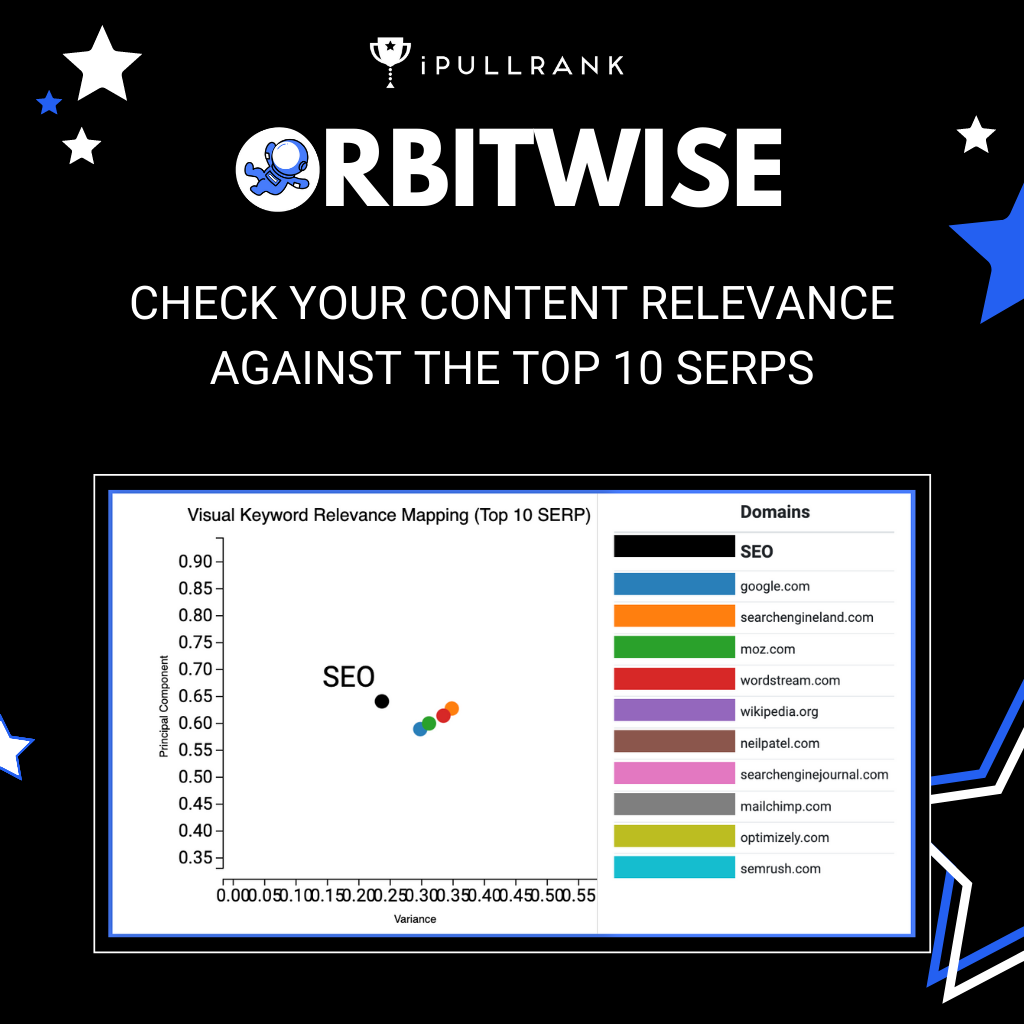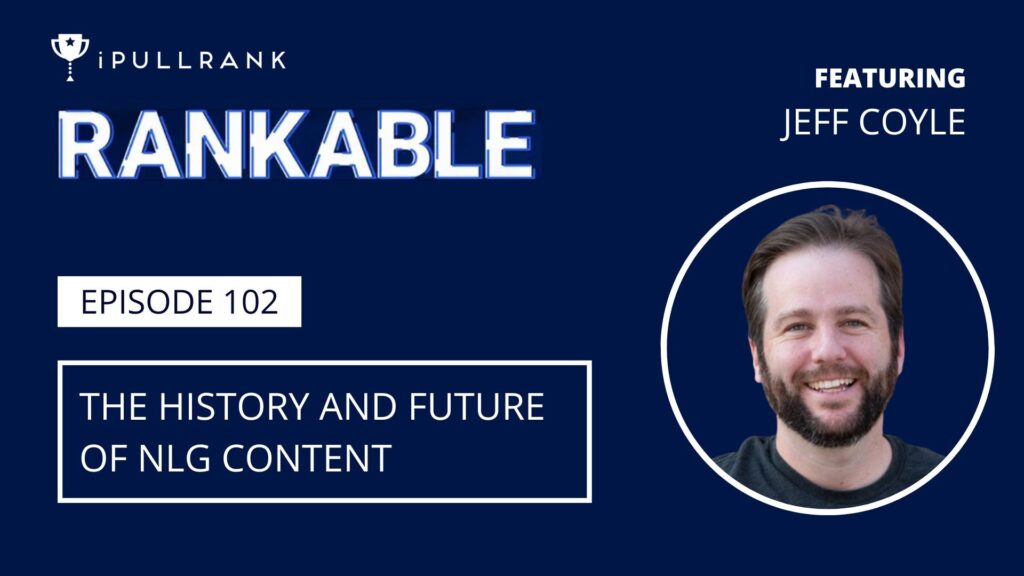
So you worked in the industry for over two decades and have witnessed marketing departments evolve from buying radio spots and ads in the local paper to fully digital campaigns. You were personally part of the team that blew everyone away by offering real ROI numbers instead of fluff coming from surveys after the latest TV ad campaign (did those ever even work?). You’ve seen it all and done most of it yourself in one shape or form. And for all your troubles, you finally got the chance to sit in the leadership circle everyone wants to be a part of – the C-Suite.
You might be the marketing guru CMO at the helm of the department. Or perhaps you are the rockstar CEO whose company leadership is surpassed only by her influence on Instagram (not like you need that sponsored post money you keep being offered). Whichever letters follow that coveted capital “C,” you have been tasked with making sense of the much more trivial “S” – as in SEO. You know the subject can be tricky and the articles you already skimmed are far too technical for anyone to understand in just a week you have to master it.

Fear not! This is the guide you need to read to sound like you’ve been around the proverbial SEO block. After reading this article, you’ll be able to hang with the VPs of Search and have them sweating to find subjects you don’t know better than them. You might even learn to lead a team of SEOs and build your own strategy! Continue reading for the only SEO guide you’ll need as a C-Suite member.
What is SEO?
SEO, or search engine optimization, is the wing of marketing focused on Organic Search. In layman’s terms (the only terms we’ll be using herein), it’s trying to get more customers to search for something on Google, find your site, and open their digital wallets to buy whatever it is you’re selling. While other search engines exist (and you might still be trying to change your phone’s default search engine from Bing to Google), they make up somewhere around 10% of the US market. And as someone who’s seen their share of savvy business reporting to avoid government interference, you know that Google controls the whole market by allowing “competitors” to pretend they have a 10% share. In sum, SEO is just trying to trick Google into thinking you have the better site than your direct competitors. In fact, if you find any other sites on Google that don’t sell the same exact products you do, you can probably ignore them. It’s apples to apples (especially if you’re Tim Cook)
Keywords Are Still Very Important
A lot of “industry experts” will try to convince you that keyword tracking is less important now than it was a decade ago. They might try to persuade you with metrics signifying growth in Organic Traffic or Organic Revenue. But ultimately they are trying to draw attention away from the obvious–their inability to rank your top keywords on page one of Google. Their biggest fear is that you already did your research into SEO agencies and found 20 of them located off-shore which guarantees top rankings!
And because of the low cost of living in countries outside the US, you will have 10 experts who are fluent in English for less than just a couple SEOs in the United States. And they’ll even work on US hours for you! And ultimately, they themselves rank in the very top position for the term “best SEO agency” so they know what they’re doing.

After hiring the team of SEO experts overseas and realizing they bought a Google ad for the term “best SEO agency” that you mistook for an Organic result because of how small the “Ad” sign was (but really, this is probably still a good sign of their SEO knowledge), you can help guide their strategy. After all, they can make you rank #1, but only you know what terms are important to your business. You already did some Googling in your research phase and found 10 single-word terms you want to dominate for. And with your newly created Google Adwords account (is that what they still call it?), you confirmed that each one has 400,000 monthly searches. Ranking in position one for all 10 terms can mean 4M new visitors to your site every month! That would be a huge win for the bottom line and a feather in your hat in the upcoming annual company-wide meeting.
Links Are Your Ace in the Hole
You caught the tail end of the SMX Conference this year and heard something about links still being one of the primary ranking factors, i.e. your shortcut to page one of Google. You might also remember the speaker mentioning creating link-worthy content, conducting intense outreach, and monitoring your backlink flow. But luckily, after adding “SEO” as one of your skills on LinkedIn, you have had offers for link building services from new SEO connections at least twice a week (and they are also located in India which you now know is the SEO Mecca). After comparing the costs proposed by your new LinkedIn friends to what some agencies are asking for, this is another no-brainer.

There is unfortunately no formula for how many links it’ll take to get to the top. However, the math is pretty simple in the sense that quality trumps quantity here. And while your competitors are cutting their teeth on building new content, you’re off to the races of building actual links. The location of the link doesn’t matter too much as long as it appears on a site with English text. That’s really the extent of what Google probably checks for when they scrape the web. With billions of pages to review daily, all that Google can do is acknowledge that your site now has thousands of new links while your competitors only have a dozen more. And this is all thanks to your ability to think outside the box and look for SEO agencies outside of your immediate city, unlike your competitors.
Technical SEO is No Match For Common Sense
With site development, things can get a bit more complicated. No one really understands the latest front-end development craze and its impacts on SEO. So you will have to rely on your hunches and decades of experience to guide the strategy for your developers. While SEOs or even Site Engineers might bring up the upcoming Google update to page experience or the need for the site to be faster, you know what the customers want. Run a few of your web pages through the Page Speed Insights tool and if you get anything above a 10, you’re probably fine.
The real test for the soundness of your site is still the user experience. So a little browsing on your home desktop and your newest iPhone is a good litmus test. The big industry secret no one wants you to know is that most QA engineers and SEOs will review performance with outdated devices and slow connection speeds.
And many of the people suggesting constant upgrades do so based on the slow performance none of your users will ever face. And obviously, Google is a giant conglomerate that has state-of-the-art technology. So trying to optimize for someone in Sudan using an iPhone 5 over a 3G network makes absolutely zero sense.
SEO Reporting
While all the strategies you are now employing are amazing, the proof is in the pudding. So make sure you are granted access to the SEO tracking tools that will prove your case. Google Analytics can get a bit tricky, so it’s best to rely on Google Webmaster Tools (which people have been calling Google Search Console for some reason). Even if you don’t know how to use this tool, you can get the hang of it with a simple Google Search Console Guide which will bring you up to speed. But if you don’t have time to read it, all you need is to go to the “Search Results” section on the left-hand side and play around with the graphs. Change the dates and filters at the top until the numbers tell the story you want to tell. Impression values are much higher than clicks, so using those will make the payoff from your hard SEO work look even more impressive.
Should your performance look less than stellar (though that’s not likely as you’re now working with two overseas agencies who guarantee results), you will need to explain what might be the culprit behind the declines in performance. The wonderful part of SEO is that there are constant updates to the Google algorithm. In fact, you’re never more than a few months away from the latest big update. If there were any negative fluctuations, 99% of the time they can be explained by one of these updates. A simple “Google algorithm updates” search will tell you what the latest big shift was and how to describe it to your peers when you need to explain performance drops. In the end, your proactive nature and marketing know-how is a win-win as all the net gains are your achievement and any unlikely losses are the fault of a Google update no one could safeguard against.
Final Word
By now you are equipped with all the tools you need to run a successful SEO campaign for the first time…
But hopefully, you also realized that most of the advice here is not going to get you far. As part of this article’s author’s love for April 1st traditions, the vast majority of this post is satirical in nature.
Most of the suggested tactics are outdated and potentially harmful to your site, so please don’t try them at home. In fact, don’t try them on any site you care about. And when in doubt, speak to a qualified SEO who does not guarantee results and wants to help you understand the process.

- How to Tell if Your Site is Mobile Friendly or Not? - April 22, 2021
- The Ultimate No-Brainer SEO Guide for the C-Suite (CEO, CMO, CTO, etc.) - April 1, 2021
- The Beginner’s Guide to Google Search Console (GSC) - August 13, 2020










Leave a Comment